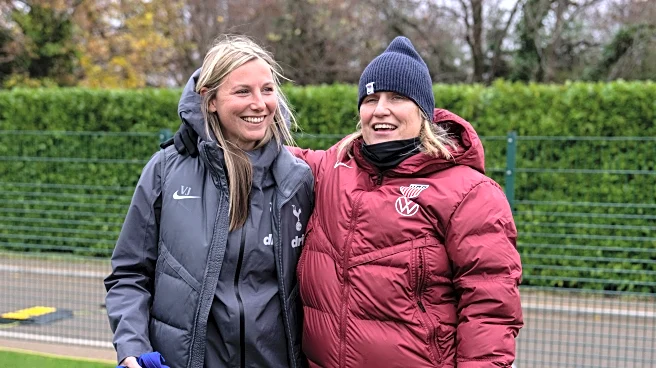Rapid Read • 8 min read
A couple, Jeannie and Ben Ewing, faced a daunting diagnosis for their two-week-old daughter, Sarah, who was diagnosed with Apert syndrome. This rare genetic condition involves the premature fusion of skull bones, leading to potential developmental issues and the need for numerous surgeries. The geneticist, Dr. Brown, informed the parents that Sarah might require between 20 to 60 surgeries throughout her life. The condition also includes syndactyly, where fingers and toes are fused, and can lead to other complications such as intellectual disabilities and various health issues. Dr. Brown also warned the couple about the high risk of divorce or addiction among parents in similar situations, emphasizing the importance of seeking therapy.
AD
The diagnosis of Apert syndrome in infants presents significant challenges for families, both emotionally and financially. The condition requires extensive medical intervention, which can be a substantial burden on healthcare systems and families. The warning about the high divorce rate among parents of children with such conditions underscores the psychological and relational stress involved. This situation highlights the need for comprehensive support systems for families dealing with rare genetic disorders, including access to specialized medical care, psychological support, and community resources. The story also sheds light on societal attitudes towards individuals with visible differences, emphasizing the importance of fostering acceptance and understanding.
For the Ewing family, the immediate future involves navigating a complex medical landscape to ensure Sarah receives the necessary surgeries and therapies. They will need to engage with a range of healthcare professionals, including surgeons, therapists, and counselors, to manage Sarah's condition effectively. The family may also seek support from organizations specializing in rare genetic disorders to connect with other families facing similar challenges. On a broader scale, this case may prompt discussions about improving healthcare policies and support systems for families with children who have rare conditions, potentially influencing future healthcare reforms.
The Ewing family's experience with Apert syndrome raises broader questions about the ethical and societal implications of genetic disorders. It challenges societal norms regarding beauty and ability, urging a reevaluation of how individuals with differences are perceived and treated. The story also highlights the resilience and adaptability required by families facing such challenges, offering insights into the human capacity for love and acceptance in the face of adversity. This narrative could inspire further research into genetic conditions and the development of more effective treatments and support mechanisms.
AD
More Stories You Might Enjoy










